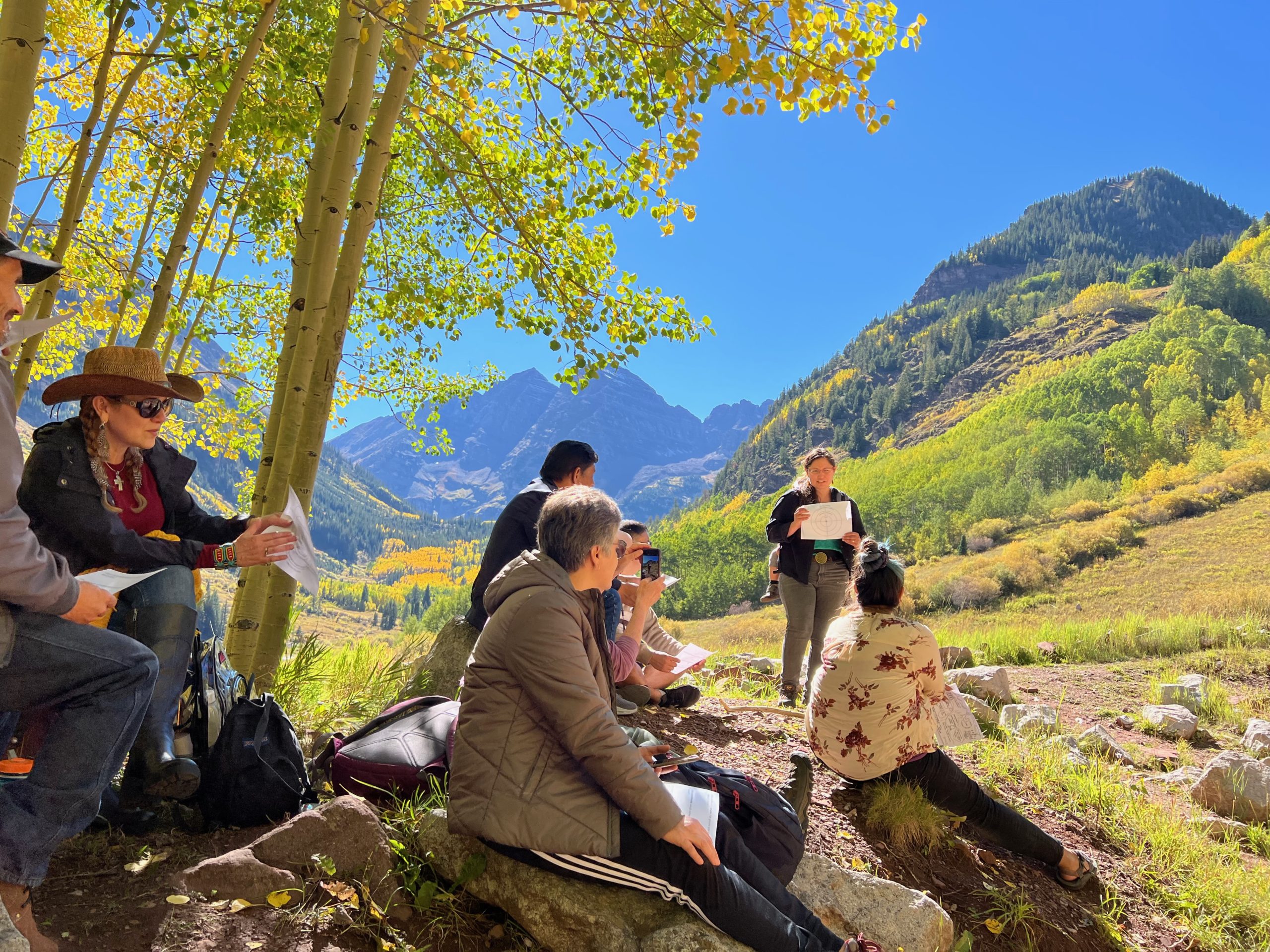By Nik Olsen | CSU Source
An effort to ensure sustainability of mountainous regions and peoples around the world, centered around local and Indigenous knowledges and braiding knowledges with western science, is moving forward with a $2 million funding push from a National Science Foundation award to Colorado State University.
Mountain Sentinels, based at CSU, is an international alliance focused on synthesizing local and Indigenous knowledge, regional policy and western science to strengthen mountain communities and sustain mountain ecosystems. Participants include academics, Indigenous rights-holders, community knowledge holders, practitioners, educators, students and decision-makers representing six continents and more than 50 countries.
The alliance seeks to address key knowledge gaps for mountain sustainability, which include contributions of local and Indigenous knowledges to adaptation and transformation; nature-based solutions for climate change in mountain systems; approaches to strengthen local governance and build equitable partnerships for sustainable livelihoods and policy; and synthesis across diverse mountain contexts of transformative pathways. The initiative also emphasizes youth engagement and training the next generation.
Summit defines path forward
Earlier in October, the group kicked off the new program by hosting the Moving Mountains Summit at the Rocky Mountain Institute Innovation Center in Basalt, Colorado. The three-day event, guided by Indigenous and intercultural facilitation, graphic art recording, and community-building activities – initiated a dialogue to identify and implement pathways to build sustainable mountain environments and communities worldwide.
Key outcomes from the Moving Mountains Summit include a declaration of values, identification of shared goals and an associated action plan, and agreement to center local and Indigenous mountain peoples in identifying and implementing pathways toward just and sustainable mountain futures.
“The Moving Mountains Summit was an amazing event that brought together our network partners from around the world, local and Indigenous mountain community members, Elders and youth,” said Julia Klein, professor of ecosystem science and sustainability (ESS) in the Warner College of Natural Resources at CSU, and principal investigator of the NSF grant.
“We shared stories, knowledges, challenges and innovations, and began to chart our work together over the next five years,” Klein said. “We are grateful for the support of the National Science Foundation as we transform the process of science to include multiple worldviews and to work with and for society and for our vital mountain systems”
Dominque David-Chavez, assistant professor of Indigenous Natural Resource Stewardship in the Forest and Rangeland Stewardship Department, and Robin Reid, a professor in ESS, are the CSU-based co-leads.
Supporting U.N. Mountain Partnership
The Moving Mountains Summit served as a precursor to the United Nations Mountain Partnership meeting later in the week in Aspen, Colorado. CSU and the Mountain Sentinels significantly contributed to the Aspen event, first by hosting a panel discussion to explore the role of higher education in fostering climate action with and for mountain people and environments. The panel discussed how institutes of higher education can successfully collaborate with NGOs, governments, businesses and local mountain communities in just and ethical ways. At the Summit, panelists agreed to engage their students in work and projects centered on mountain sustainability and the work of the Mountain Partnership.
Gov. Jared Polis delivered opening remarks at the meeting and introduced Interim President Rick Miranda, who spoke about CSU initiatives focused on mountains.
“We are deeply committed to this work, and we are excited that this new Mountain Sentinels initiative will, among other things, allow students to work with the Mountain Partnership at events such as the UNFCCC COP climate change negotiations to engage in climate action around sustainable mountain development,” Miranda said.
“That collaboration and creativity are critical as we address these challenges, and that it’s imperative to bring the next generation into this work,” Miranda added. He assured the delegates that the Mountain Sentinels Network and CSU are here to support this critical effort focused on inclusive and sustainable mountain development.
Mountain Sentinels also co-hosted a panel discussion with the Canadian Mountain Network that explored how to braid Indigenous knowledge and western science. The panel had an extra seat on the stage to represent “our other natural relations.” The panel discussed the need to expand partnerships to include members of mountain communities, and to address historical injustices and threats to communities through developing an ethical space for dialogue. The panel encouraged letting research and knowledges co-production be guided by the principles of reconciliation and mutual respect, and investing in the youth, as they will be future decision-makers.
CSU and the Mountain Sentinels will continue to organize events and partnerships, and offer opportunities for students to work toward the goal of supporting mountain community resilience and building durable pathways for sustainable mountain environments.

